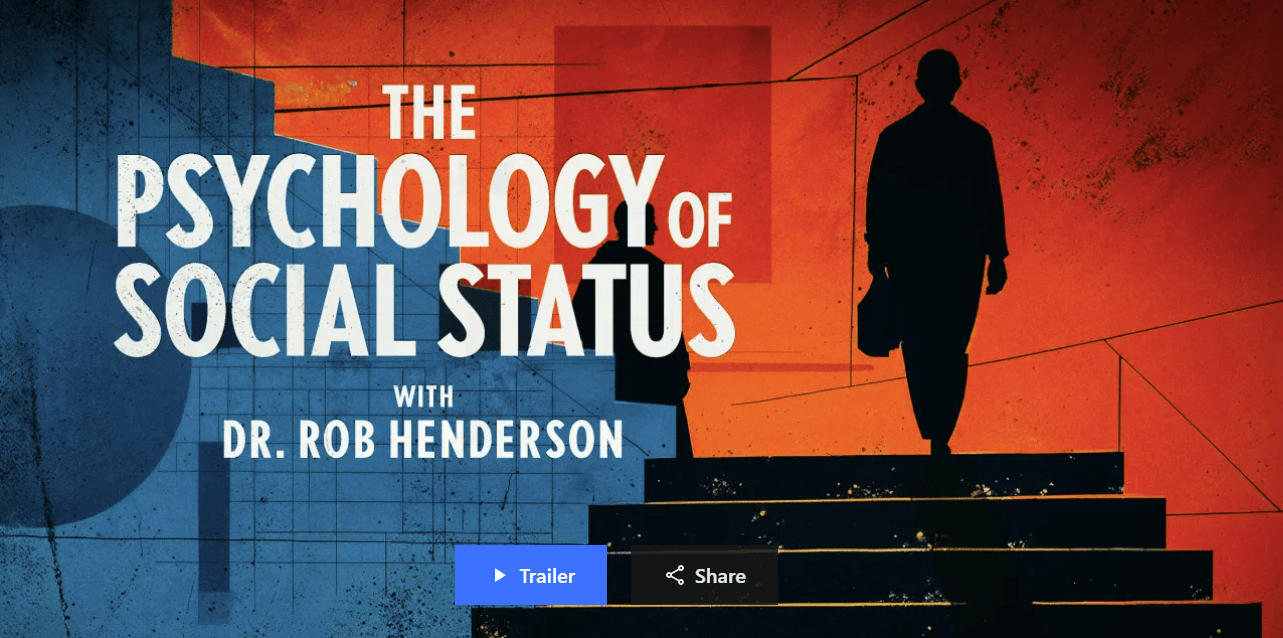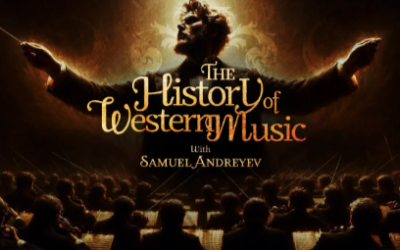Explores the psychology of social status, examining its evolutionary roots, developmental origins, and the fundamental role it plays in shaping human behavior.
File Size: 5.746 GB.
Format File: 6 MP4, 6 SRT, 7 TXT.
Peterson Academy – Rob Henderson – The Psychology of Social Status

In the Psychology of Social Status, a seven-hour course, Dr. Henderson explores the psychology of social status, examining its evolutionary roots, developmental origins, and the fundamental role it plays in shaping human behavior. The course delves into individual differences in status-seeking, the evolutionary reasons behind status pursuit, and the complex relationships between status, envy, and emotions. It also investigates the dynamics of social status in relation to stories, plot lines, and arenas of competition, and concludes by discussing the concept of luxury beliefs and their impact on society.
Lectures
1. Status Psychology
In our first lecture, Dr. Rob Henderson introduces us to the psychology of social status, exploring its evolutionary roots, developmental origins, and the fundamental role it plays in shaping human behavior. He examines the two facets of status – dominance and prestige – and discusses how they differ in their characteristics and the ways in which they are attained. The lecture also covers the relationship between status and power, the universality of status-seeking across cultures, and the emotional and behavioral consequences of experiencing low or threatened status.
2. Status Dynamics
In lecture two, we explore individual differences in the desire for and pursuit of status, examining how various personality traits, including the Big Five, self-monitoring, the Dark Triad, and the Light Triad, as well as intelligence and age, relate to status-seeking behaviors and outcomes. The discussion highlights the nuanced relationships between these factors and status attainment, emphasizing the importance of balancing status pursuit with empathy and cooperation for long-term success.
3. Status Evolution
In lecture three, we delve into the evolutionary reasons behind the human desire for status, focusing on sex differences in status-seeking behavior. We explore how status is tied to evolutionary fitness, as it increases access to resources, allies, and romantic partners, ultimately leading to greater offspring survival. We also examine the different arenas of status competition for men and women, discussing how women’s mate preferences shape men’s status-seeking strategies, and how both sexes engage in intrasexual competition for status and desirable mates.
4. Envy Explored
In lecture four, we look at the complex nature of envy and its relationship to social comparison, status, and emotions like schadenfreude and pride. The discussion delves into the evolutionary origins and adaptive purposes of envy, its manifestation in various societies, and how factors such as similarity and domain relevance influence the targets of our envy. The lecture concludes by examining the dual nature of pride and the importance of avoiding excessive upward social comparisons for personal well-being.
5. Status Games
In lecture five, we investigate the dynamics of social status and how it relates to stories, plot lines, and arenas of competition. We explore the hero’s journey narrative, the evolutionary origins of language and creativity, and the three main status games – dominance, virtue, and success – discussing their manifestations, advantages, and pitfalls in modern society. We also examine the intricacies of status signaling, countersignaling, and the impact of status ambiguity on social relations and conflict.
6. Luxury Beliefs
In our sixth and final lecture, we learn about the concept of luxury beliefs, which are ideas and opinions that confer status on the upper class while often inflicting costs on the lower classes. Dr. Henderson draws upon his personal experiences and research from various disciplines to explore how these beliefs have largely replaced luxury goods as status symbols, and how they are propagated and reinforced by the educated and affluent. We conclude by reviewing the numerous important concepts that we covered in the course.
Course Features
- Lectures 0
- Quizzes 0
- Duration 10 weeks
- Skill level All levels
- Language English
- Students 72
- Assessments Yes











